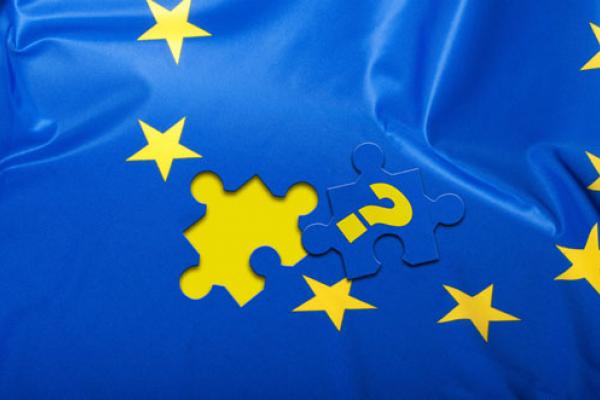What are the options for Scotland's relationship with Europe? Kirsty Hughes discusses how Brexit has radically changed the implications for an independent Scotland in the EU.
The possibility of an independent Scotland being in the European Union remains a key issue in the independence debate. Brexit doesn’t much change the choices available to an independent Scotland – being in the EU, or in the European Economic Area or neither – but it certainly changes the impact and implications of these choices.
The EU debate was already central to the 2014 independence referendum. Many on the pro-UK side argued that Scotland would struggle, and take time, to re-join the EU. The pro-independence side argued it would be rapid and seamless given that Scotland had been in the EU for over 40 years, and so already met its membership requirements.
Today, the EU is an even higher profile issue in the independence debate. Despite a strong vote to Remain in 2016, Scotland has now left the EU with the rest of the UK. If Scotland were to rejoin as an independent member-state, the rest of the UK would be a third country outside of the EU.
What are the options for an independent Scotland’s relationship with the EU?
Independence in the EU
There are many much-debated issues around the likely speed and ease or difficulty on an independent Scotland’s path to EU membership: what currency would it use?, how big a fiscal deficit might it face?, might its application be vetoed?, and so forth. The fact of Brexit also changes how some of these issues and challenges might look, also raising new questions not least on the border with the rest of the UK. If an independent Scotland were in the EU, then Scotland’s border with the rest of the UK would be an external border of the European Union. If the UK negotiates some form of ‘Canada-dry’ or ‘Canada minus’ trade deal, the Anglo-Scottish border would be both a regulatory and a customs border. And while the Brexit debate has seen much time spent discussing how to minimise such checks or move them away from the border, it is clear there would indeed be a range of checks needed at the Scotland-UK borders.
Politically, at EU level, there has also been a shift. There is now more openness to the possibility that Scotland could become independent and apply to re-join the EU. Certainly, member states with concerns around secession – including, but not only, Spain – would want to be re-assured that any independence referendum was constitutionally and legally valid. But, with the UK no longer a member state, and with the ill-will generated by the whole Brexit process, Scotland as a pro-European, remain-voting country is now seen by EU member states (and indeed by EU officials) in a much more positive light.
The EEA and Third Country Options
In the face of the likely border challenges, some argue an independent Scotland should consider negotiating a close relationship with the European Union without seeking full membership, much as Norway has done. If Scotland were in the European Economic Area (EEA), alongside Norway, Iceland, Liechtenstein and the EU member countries, it would be in the EU’s single market but not in its customs union. It would therefore be free to strike its own trade deal with the rest of the UK. The upsides would potentially be less friction in Scotland-rUK trade. The downsides are clear – there would then be borders and barriers in both directions: regulatory borders with the rest of the UK (not being in the EU single market) and customs borders, as Norway faces, with the EU. Any serious discussion would need in-depth economic analysis of the static and dynamic benefits of these different options.
Some argue an independent Scotland should be in neither the EU nor the EEA. The costs of being a third country outside the EU have been extensively analysed and debated during the Brexit debate in terms of border frictions and knock-on effects to lower trade volumes, lower growth and lower investment (including by both UK and Scottish governments). It would seem an unlikely option for Scotland. But if an independent Scotland went down that route perhaps it could form a customs union with the UK and so remain part of whatever UK-EU trade deal emerges – a new form of ‘independence light’.
Overall, an independent Scotland in the EU would find itself part, with the other EU member states, of whatever UK-EU trade and security relationship had been negotiated. It’s clear that, compared to the debate in 2014, Brexit radically changes, in many ways, the implications of independence in the EU.

